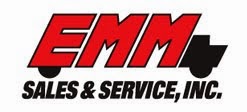The United States is a huge nation, and its heartland produces quite a bit of the food that the more populated East and West coasts consume every day. A country the size of America, both in population and in geographic proportions, requires quite a bit of food to be grown every year. Considering the size of our agricultural industry, and the distance between farms and major population centers, it is no surprise that the transportation of agricultural products has become a major industry critical to the continued health and prosperity of our society.
How We Stay Fed
Wheat, corn, and other grains are largely grown in the Midwest. These foods make up the foundation of the American diet; bread and other carbohydrates are a big part of what we eat in every meal, every day. Yet the amount of grain that must be grown each day in order to meet our ever-increasing demand is far more than individual farmers can handle; they are equipped to grow their crops, but they are not equipped to transport the fruits of their labor to the factories that create the final product – bread, cereal, and so on.
Grain isn’t only used to feed us, however; it is also used to feed the livestock of other farmers. We have a very big appetite for meat in America and, more and more, across the world. The more meat we want to eat, however, the more animals that need to be raised, which means they need to be fed. More than that, they need to be fed the proper nutrients in order for them to grow properly, and that means feeding them exceedingly well.
Quite a bit of our agricultural produce – corn, soybeans, and other grains – goes to livestock farmers to feed their animals. This, in fact, is part of what has made ethanol gasoline a difficult proposition in America; so much of the corn that would otherwise be going into the production of ethanol instead goes to pig farmers and other livestock. In other words, the feeding of our livestock is of a greater priority than alternative energy sources.
Keeping Things Moving
This is where the agricultural transportation industry comes in. Feed and grains have to be transported not just to processing plants to make our food, but to make feed for the livestock that will… also… become our food. It all ends up in our bellies, but there are many roads to Rome. Farmers need not only to transport the grain the harvest but also they need to transport their livestock to market to sell them. EMM Sales & Service, Inc. carries the full line of Wilson Grain and Livestock Trailers that can be used to help in this accomplish these tasks.
There are a variety of ways to transport feed, but whatever method is used, it has to be able to handle the high volume that the industry puts out. Whether the feed is being transported by train or trailer, a container that can’t withstand the shifting weight and pressure that will be put on it regularly and not be able to transport it efficiently will quickly fail the transportation service, losing it quite a bit of money and business. This is why EMM Sales & Service, Inc. is one of the largest dealers for Walinga Feed Transportation equipment in the United States.
The Cost of Doing Business
Even when a transportation service uses high quality equipment and methods, repairs are a regular part of doing business. Transportation services that use trailers must have a repair service on hand that they can trust to get the job done quickly and correctly when it comes to repairs, which is exactly the kind of work EMM Sales & Service, Inc. does.
Whether your hydraulic systems need an overhaul, your bed liner needs repaired, augers need replaced, you have accident damage that needs fixed or any number of other repair services are required, a quality transportation repair and installation service can take care of all of that and more. Services like EMM can repair all brands of dump bodies and trailers and grain trailers, though they often have specialties that make them particularly suited to working with one or another transportation service. For example, EMM’s specialty is in repairing feed transportation equipment and trailers.
The transportation of feed is an essential part of our agricultural system in the United States. Without the feed that livestock producers receive, we would be unable to eat meat milk and eggs in the quantities that we demand and it would drive up the price of these foods to absurd proportions – leading to a lack of protein in the diets of many people across the country, which could mean malnutrition among low-income populations that could not afford the increasingly-expensive meat and food items on the market. Efficient, well-run agricultural transportation services are what keep food affordable and our children healthy, and quality agriculture transportation equipment sales and repair services are what keep them in business.

